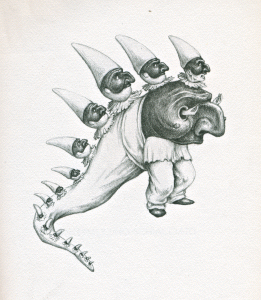 The italian way to Humanistic Management
The italian way to Humanistic Management
According with Domènec Melé “management could be called humanistic when its outlook emphasizes common human needs and is oriented to the development of human virtue, in all its forms, to its fullest extent. A first approach to humanistic management, although quite incomplete, was developed mainly in the middle of the 20th century. It was centered on human motivations. A second approach to humanistic management sprang up in the 80s and centered on organizational culture. This implied a wider approach to the human condition while taking into account the influence of culture on behaviors and decision-making, but it is incomplete, too. There is a third approach to humanistic management, which is still emerging, that considers a business enterprise as a real community of persons. That means promoting unity and favoring the acquisition of human virtues. This humanistic management approach is a real challenge in order to achieve a higher moral quality in management, human virtues among people and more efficient organizations”. (Domènec Melé, The Challenge of Humanistic Management, JOURNAL OF BUSINESS ETHICS Volume 44, Number 1, 2003)
The aim of this site is to show the particular italian approach to Humanistic Management, developed by Marco Minghetti in collaboration not only with a lot of managers, consultants, economists, but also philosophers, writers and artists like Milo Manara e The Nobel Prize Wislawa Szymborska. A multidisciplinary approach to understanding the complex, liquid, nature of the contemporary firm and society, alternative to the pervasive presence of the “solid” Scientific Management. The belief is that even in the great madness of the contemporary age a method, an interpretation and a meaning can be found that all the actors playing out their roles and living out own their stories on the business and society stage can share.
In other words, as Humanistic Management Manifesto points out, the italian vision of Humanistic Management isn’t a new paradigm, a new absolute, axiomatic truth, but rather a new type of discourse. A discourse that talks to us of how to catch the emergence of new things, of how one learns to learn, of how the one is affected by the world we belong to and, at the same time, how the world is (also) the fruit of our creative contribution. Of how then to recommence reflection on the aims, in addition to the means, that puts “art” at the centre, as is revealed to us at the highest level by poets, novelists and playwrights: by “humanists” in the Renaissance sense, storytellers, sensemakers through the novel, poetry, autobiography, the theatre and the cinema, but also the social networking e the web 2.0.
As Gary Hamel has recently written: “The management model that predominates in most organizations has its roots in the early 20th century. At that time, management innovators were focused on the challenge of achieving efficiency at scale. Their solution was the bureaucratic organization, with its emphasis on standardization, specialization, hierarchy, conformance and control. These principles comprise the philosophical foundations of Management 1.0, and are deeply baked into management mindsets and processes. In virtually every organization, one finds that power cascades down, that strategies get set at the top, that tasks are assigned and not chosen, that supervisors review subordinates rather than the other way around, that control is imposed, and that senior executives allocate resources.
Before the Web, it was hard to imagine alternatives to management orthodoxy. But the Internet has spawned a Cambrian explosion of new organizational life forms–where coordination occurs without centralization, where power is the product of contribution rather than position, where the wisdom of the many trumps the authority of the few, where novel viewpoints get amplified rather than squelched, where communities form spontaneously around shared interests, where opportunities to “opt-in” blur the line between vocation and hobby, where titles and credentials count for less than value-added, where performance is judged by your peers, and where influence comes from sharing information, not from hoarding it.”
Origins of Humanistic Management in Italy: the ockhamist organization
The Humanistic Management Manifesto
Nothing twice. The Management seen through the poetry by Wisława Szymborska
Collaborative Intelligence Towards the Social Organization
Humanistic Management 2.0
- Home
- Origins of Humanistic Management in Italy: the ockhamist organization
- Agip Library
- The Shakespearian Company
- The Humanistic Management Manifesto
- Nothing twice. The Management seen through the poetry by Wisława Szymborska
- The Humanistic Management chair
- The In-Visible Corporation
- Web Opera
- ideaTRE60
- Postmodern Alice
- Founder & CEO of Humanistic Management 2.0
- News
- About Marco Minghetti
- Selected Excerpts
- Home
Feed RSS Subscriptions
Email subscriptions
About
Social media
Tag
Alice Alice in Wonderland Alice Wonderland Carroll Shakespeare Postmodern Baricco Deleuze Digital Awards Frank Kermode gary hamel George Steiner Hamlet Harold Bloom humanistic management labirinth Looking Glass management Management 2.0 Hackathon map Marco Minghetti poetry Postmodern Raymond Queneau Shakespeare Snark Stevenson Wislawa Szymborska Wonderland

Latest Comments